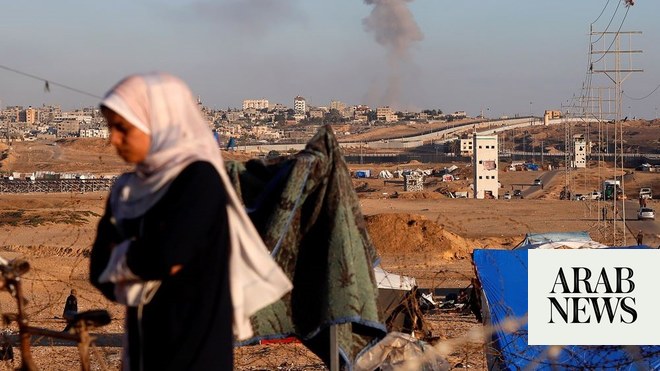
The war in Yemen has caused a human catastrophe, torn society apart, and triggered “waves of mass displacement, repression and enforced disappearance”, the country’s Minister of Foreign Affairs said on Monday, the final day of the UN General Assembly’s annual debate.
“Yemen has been living in difficult and harsh conditions for seven years, imposed by the Houthi coup militia on our people, with logistical and military support from the Iranian regime”, said Ahmed Awad Bin Mubarak, who also serves as Minister of Expatriates Affairs.
Stop the bloodshed
Despite having the war imposed upon the Yemeni people, “we have extended our hand to peace over and over again” in an effort that to spare further calamity and disaster, the Foreign Minister said during his in-person remarks to world leaders at the debate.
Last year’s debate was held almost entirely virtually due to the COVID-19 pandemic, but the 2021 session is being held in a hybrid format, combining in-person and virtual participation.
“We have done everything in our power to...reach a lasting and comprehensive peace that ends...”, the Foreign Minister attested, adding that unfortunately all efforts were met with “complete intransigence by the terrorist Houthi militia, and the regime [that] supported them”.
Bin Mubarak stated that attacks have been escalated and mobilized, including in the governorates of Al-Bayda, Abyan and Al-Dhalea, as well as in the civilian port of Mocha.
Drawing particular attention to Marib, he noted that Houthi militia have been “waging a reckless military campaign for a month now, targeting residential neighborhoods with ballistic missiles, drones and various types of heavy weapons, without regard for life”.
The Foreign Minister underscored the need for “effective and decisive pressure on the coup d"état and their sponsors” to implement Security Council decisions and to stop spilling blood and allow humanitarian aid “to reach all Yemenis”.
"Unimaginable" offenses
“The crimes and violations of human rights committed by the Houthi militias in Yemen are unimaginable”, said Bin Mubarak.
He described the “brutal” extrajudicial execution of nine Yemenis, counting a minor, just nine days ago, while pointing to dozens of others in prisons “waiting for their turn”.
Meanwhile, he said, thousands more remain in “secret detentions”, including “forcibly disappeared politicians, journalists, and activists”.
The Foreign Mister said that since the Houthi coup, the economy, job opportunities and the national currency have all shrunk as humanitarian conditions have deteriorated.
Decreased purchasing power has become a “major driver of the risk of starvation that threatens millions of Yemenis”, he explained.
Thanking the global leaders for their support to alleviate the ongoing human tragedy, he upheld that “these efforts were not spared from the Houthi militias’ practice of blackmail, harassment and siege” currently underway as war continues, economic challenges exacerbate, and obstacles facing government and state institutions continue.
Call for international support
To resolve the crisis, the Yemeni Foreign Minister renewed his call for the international community to exert more pressure on the Houthis to stop imposing exorbitant levies for the war effort, multiple religious occasions and other reasons and to deposit the money it collects into the Central Bank so as to regularly pay civil sector salaries.
He also asked for efforts to strengthen the national economy and halt the deterioration of the national currency, including by disbursing aid funds through the Central Bank of Yemen.
Bin Mubarak underscored the need to integrate development priorities into all humanitarian interventions by focusing on community economic activities and implementing the Sustainable Development Goals (SDGs).
And finally, he stressed the urgent need for a financial support package, including a monetary deposit to the Central Bank of Yemen to prevent the further collapse of the economy, national currency and exacerbation of economic burdens on Yemen’s citizens. — UN News











